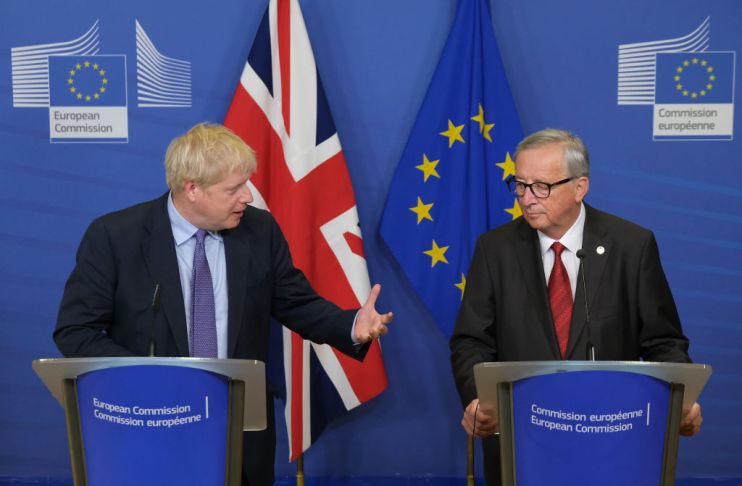No-deal Brexit remains biggest risk to European growth, IMF warns

A no-deal Brexit remains the biggest threat to the economies of Europe, the International Monetary Fund (IMF) has warned, and could further damage already very weak growth.
Read more: IMF warns 2019 global growth will fall to lowest since financial crisis
The words of caution from the IMF come as Britain gears up for a General Election that Prime Minister Boris Johnson hopes will provide a mandate for the UK to leave European Union with his Brexit deal.
The PM last month requested an extension to Britain’s EU membership until 31 January 2020, meaning the UK could still crash out without a deal then.
The IMF, in one of its first reports under its new chief Kristalina Georgieva, today said a no-deal exit is “the key risk in the near term” to the European economy.
It said such an event “could have a sizeable impact” on the economies of both the UK and the EU.
In Britain, it could cause output to be 3.5 per cent lower than it should have been in two years time. The EU would be less badly affected, with output 0.5 per cent below where it should have been.
In its report on Europe, the IMF said Brexit-related uncertainty had already been a factor holding back trade in Europe. It said the US-China trade war the main cause, however.
“Growth in global export volumes has slowed significantly from about 4.5 per cent in 2017 to close to zero in the first half of 2019,” the IMF said.
The report showed that Ireland is the country by far the most exposed to trade with the UK, suggesting it is the country with the most to lose from a no-deal Brexit. Belgium, the Netherlands, and Iceland are the next three most exposed.
The IMF said central banks in Europe should keep interest rates low to try to boost economies, given that inflation looks likely to stay subdued.
Read more: General Election poll: Conservatives lead Labour by seven points
It said that in countries with budget surpluses and investment needs, “a measured fiscal expansion should be considered to boost potential output”.
(Image credit: Getty)